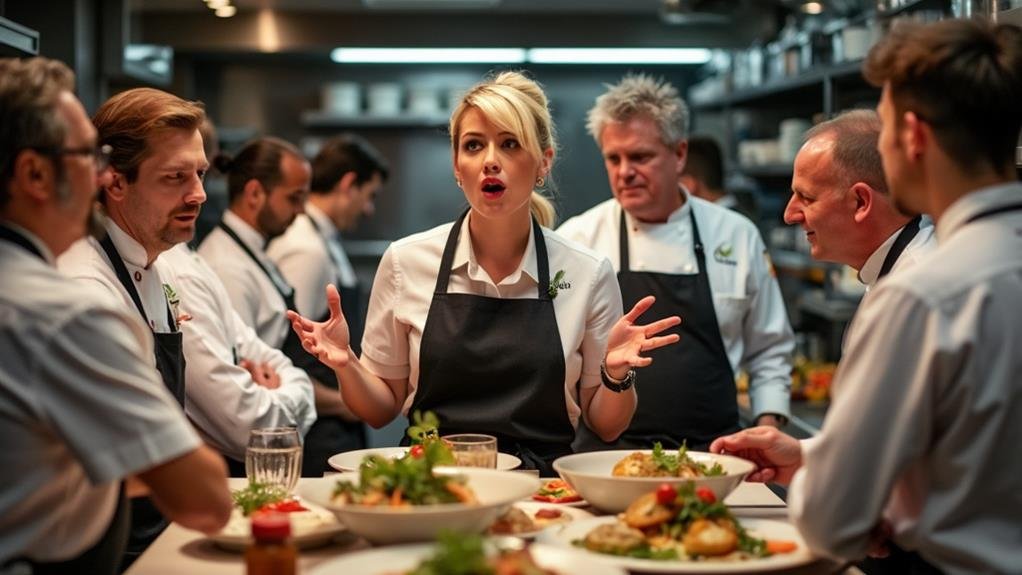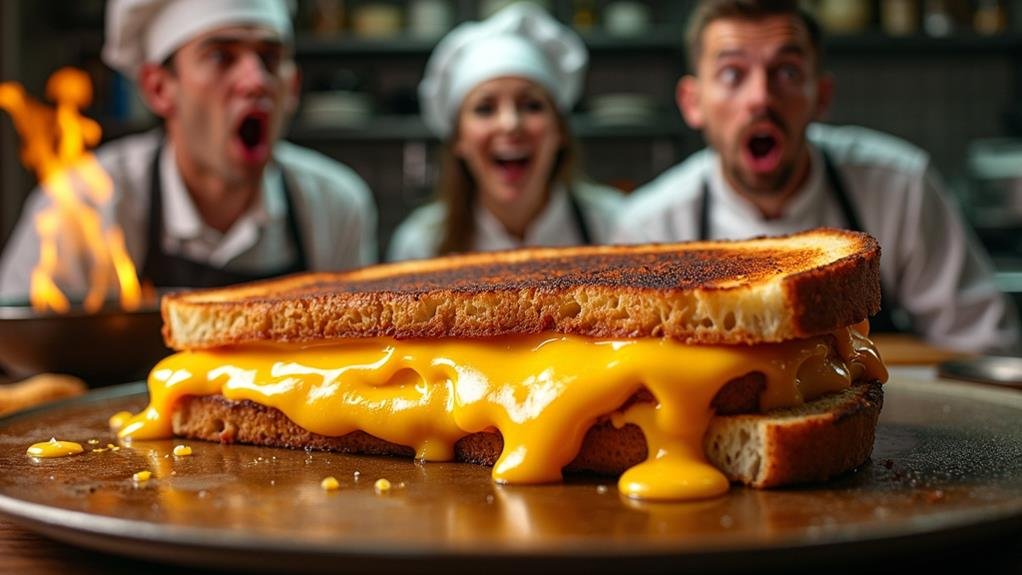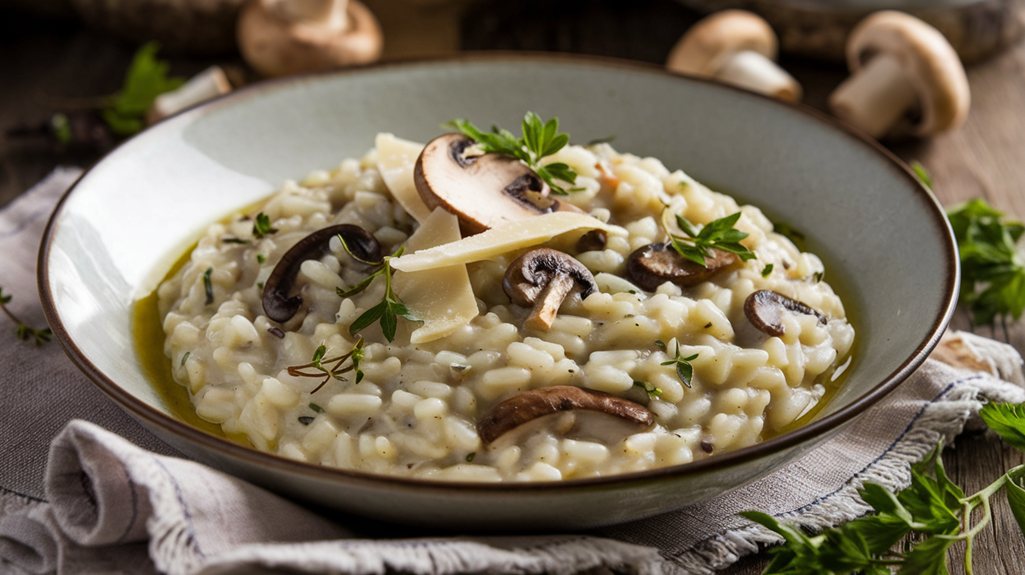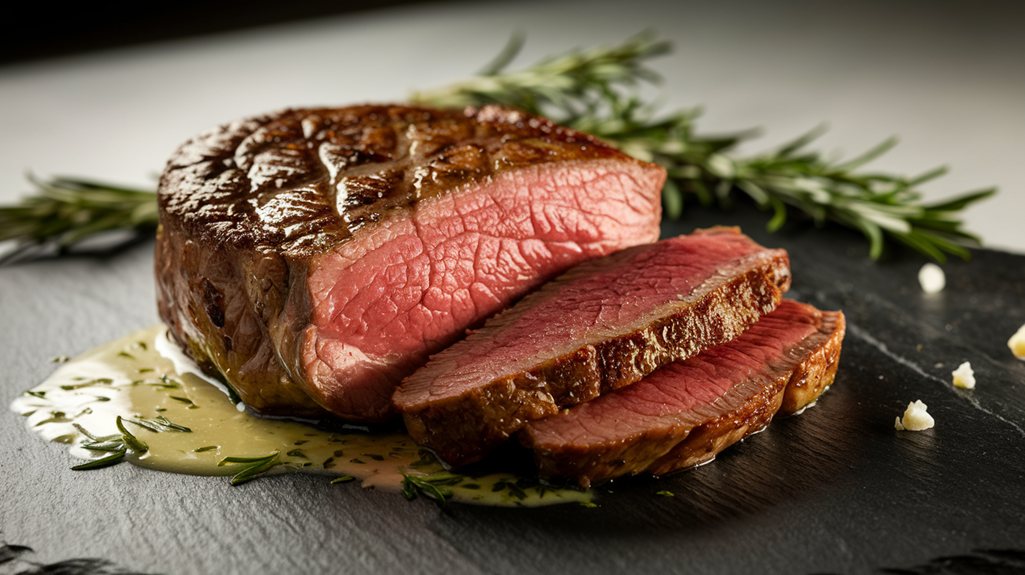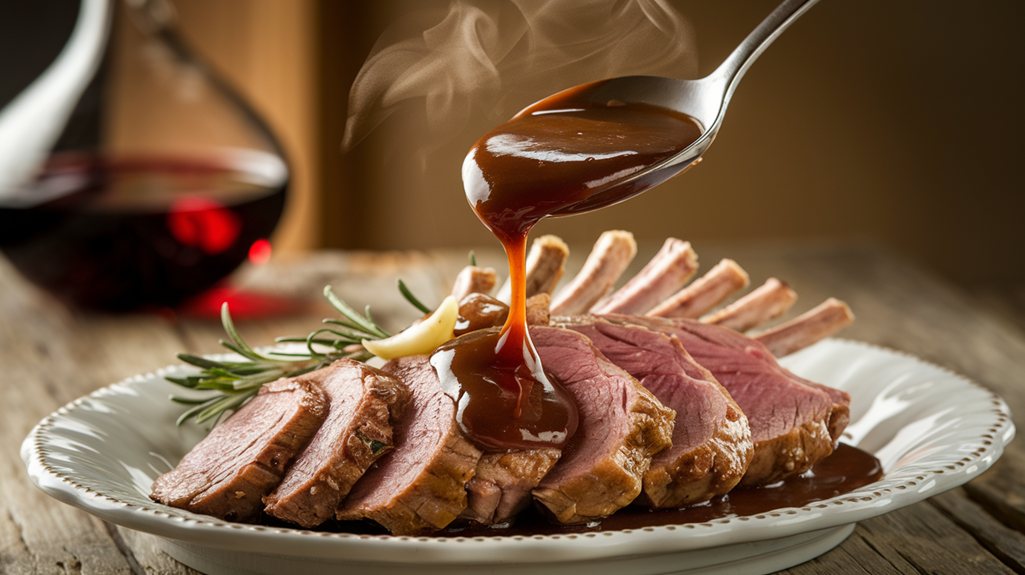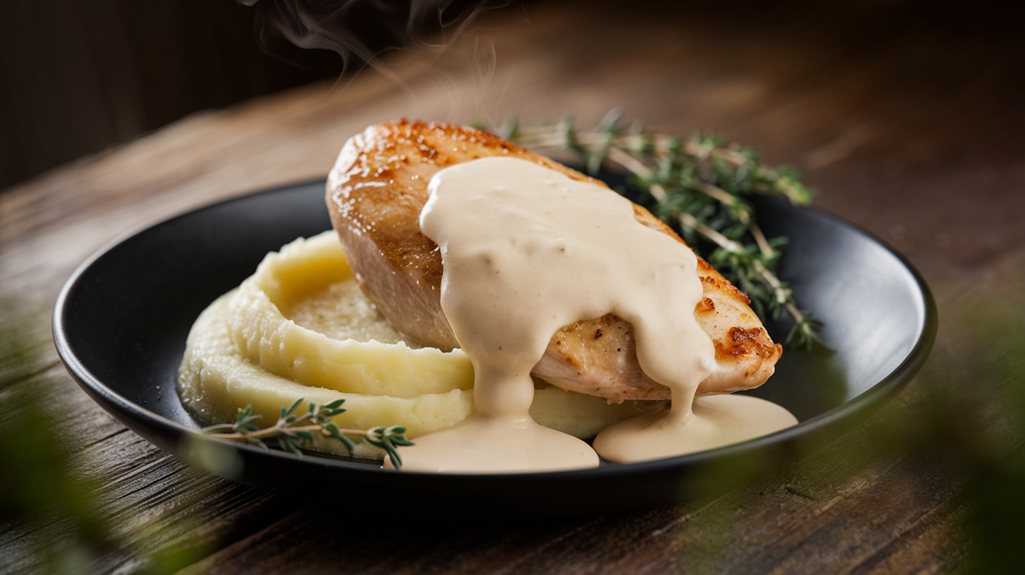At the tasting table, Tilly Ramsay faced a surprising critique from her father, Gordon Ramsay, which revealed the intricate dynamics of their culinary relationship. While Tilly showcased her creativity, Gordon’s feedback emphasized independence, encouraging her to engage deeply with flavors, textures, and aromas. This exchange highlighted both the joy and complexity of their connection as lessons unfold amid competition. Tilly’s experiences in the kitchen, filled with laughter and learning from mistakes, echo Gordon’s teaching philosophy. In this moment, the balance of support and honesty creates profound growth, inviting reflections on culinary education and personal exploration. More insights await.
Gordon Ramsay’s Teaching Philosophy
Gordon Ramsay’s teaching philosophy emphasizes independence and a comprehensive understanding of culinary arts as vital life skills. He prioritizes hands-on learning experiences over conventional authoritative methods. This approach encourages budding chefs to engage with their cooking surroundings actively, highlighting the joy of culinary exploration instead of the anxiety of flawless execution. At the tasting table, Ramsay prompts students to explore diverse flavors, textures, and aromas, turning cooking into a sensory journey.
Through practical activities, Ramsay builds confidence in his students, permitting them to experiment without fear. He believes the kitchen should serve as a platform where errors transform into valuable lessons rather than sources of embarrassment. This belief is evident in his interactions, where he frequently shares humorous personal stories about his culinary blunders.
Ramsay’s philosophy also embodies a deep respect for ingredients and their sources. He educates about food origins and the significance of sustainability, enhancing the educational experience. In this way, he elevates cooking into a purposeful endeavor, reinforcing that every dish crafted at the tasting table represents not just sustenance but also a testament to individual development and creativity.
Tilly’s Culinary Background
Tilly Ramsay’s culinary foundation is rooted in her upbringing on a farm, where she interacted with various animals like pigs, lambs, and turkeys. This environment taught her the significance of cooking as an essential life skill and deepened her respect for food sources. Her connection to nature cultivated a sense of responsibility, enhancing her appreciation for the journey from farm to table.
In a lively household with five siblings, the Ramsay family celebrated the joy of cooking. Preparing meals became a shared activity, creating bonds rather than feeling like a task. Tilly fondly remembers the thrill of kitchen experiments, often filled with laughter and creativity. Instead of pushing for a career as a professional chef, her parents nurtured a passion for cooking, ensuring every child could confidently prepare a meal before embarking on their college journeys.
These experiences shaped Tilly’s culinary path, equipping her with practical cooking skills and a rich understanding of culinary artistry. With every dish she crafts, Tilly reflects on the lessons from her upbringing, embracing both freedom and responsibility in her culinary creations.
Parenting Style in the Kitchen

The Ramsay family’s kitchen fosters a nurturing yet structured environment where culinary education and shared experiences cultivate a passion for cooking. Gordon Ramsay and Tana Ramsay motivate their offspring to explore the culinary arts, highlighting that cooking serves as a medium for creativity and self-reliance. In a recent interview, Matilda Ramsay revealed how her parents taught her the significance of understanding food origins, from backyard chickens to homegrown tomatoes.
Gordon’s approach balances direction with liberty, allowing his children to innovate while gently guiding them through errors. For example, when Matilda overcooked a steak, Gordon framed his feedback as a chance for improvement rather than as criticism. This method fosters resilience and a sense of adventure, enabling the Ramsay children to find joy in cooking instead of viewing it as a task.
Through enjoyable family cooking sessions, from making pasta to whipping up scrambled eggs, the Ramsays create a space where mistakes are embraced as valuable lessons. In this kitchen, laughter and learning blend seamlessly, creating cherished memories. Their parenting philosophy reflects the notion that cooking, much like life, is about the journey, not just the result.
MasterChef Junior Experience
Tilly Ramsay’s journey on MasterChef Junior shapes her culinary path. She evolves from a participant into a judge, sharing her love for cooking with aspiring young chefs. This transformative experience marks a significant chapter in her career, built on years of kitchen expertise gained from her father, Gordon Ramsay, and personal exploration.
Each episode showcases the joy cooking brings as Tilly engages with contestants aged 8 to 13. She fosters their creativity and independence, often reminiscing about her childhood cooking adventures with her siblings. In this lively setting, Tilly highlights the value of learning through mistakes—a lesson she holds dear.
MasterChef Junior serves as more than just a cooking competition; it offers a space for growth, laughter, and culinary expression. As she watches these young talents thrive, Tilly embraces her role as a mentor and supporter of their aspirations. Her transition from contestant to judge encapsulates the essence of food as a means of connection, creativity, and self-discovery—a journey she fully embraces and values.
Insights From the Tasting Table
Insights from the tasting table highlight the delicate relationship between innovation and skill that young chefs cultivate during their culinary journeys, especially within the nurturing framework of MasterChef Junior. In this setting, cooking evolves beyond simple recipes; it transforms into a path of personal exploration. Each dish prepared by these budding chefs mirrors their distinct characters, influenced by the mentorship of experienced chefs like Gordon Ramsay.
Tilly Ramsay exemplifies a blend of support and insightful feedback in her role as a judge. Her father’s philosophy, which prioritizes learning from errors, resonates profoundly with every young participant. The tasting table serves as a platform where flavors are honored and creativity thrives.
Observing both victorious moments and minor setbacks, it becomes evident that cooking transcends artistry; it represents an essential life skill. The shared joy over a perfectly cooked omelet or the collective disappointment regarding an overdone steak encapsulates the essence of development. Through this culinary perspective, creativity and liberty intertwine, empowering these young chefs to flourish, equipped with the knowledge gained from their experiences and the encouraging presence of Gordon Ramsay.


